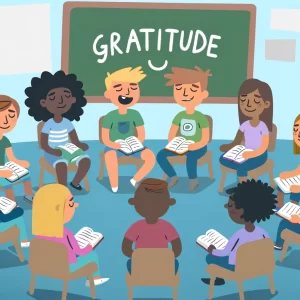
Social Media Warning Labels?
Note: This article was cross-posted from This Week in Public Health
Social media has become an integral part of our lives, especially for adolescents. They scroll through Instagram, share TikTok videos, and chat with friends on Discord—all while navigating their schoolwork, friendships, and self-image. But is this digital interaction harming their mental health? According to US Surgeon General Dr. Vivek Murthy, the answer may be yes, and he is calling for something drastic: a warning label for social media platforms, akin to the ones we see on tobacco and alcohol.
The Growing Evidence of Harm
In a recent op-ed and interview, Dr. Murthy highlighted a growing concern that social media platforms are having detrimental effects on adolescent mental health. Although platforms like Instagram and TikTok provide opportunities for social connection, the negative side of these platforms cannot be ignored. Studies now show a link between extensive social media use—particularly over three hours per day—and a doubling of the risk of anxiety and depression symptoms in adolescents. More alarmingly, nearly half of teens report feeling worse about their body image after using social media, and one-third feel addicted to it. The implications are serious.
Dr. Murthy’s push for a Surgeon General’s warning label on social media is not just a symbolic gesture. It’s a step toward recognizing the mental health crisis affecting young people. Much like how tobacco warnings have informed us of long-term health risks, a label on social media would serve as a stark reminder to parents, teens, and caregivers that these platforms aren’t proven to be safe.
The Cost of Inaction
One of the most striking points Dr. Murthy makes is the potential cost of inaction. “Can you imagine if a medication for kids was put on the market and hundreds of children died after taking it?” he asks. “We would investigate immediately and take measures to ensure safety.” Yet when it comes to social media, which is associated with an increase in self-harm and even suicide, society has been slow to react. This, he argues, is unacceptable.
The comparison is chilling but necessary. We ground airplanes after a malfunction, and we recall dairy products after a Listeria outbreak. So why do we hesitate when it comes to the mental health harms of social media, particularly for our youth?
A Call to Action for Parents and Clinicians
The need for action is clear, but what can be done in the meantime? Dr. Murthy offers practical advice for parents and clinicians. Open communication is key. Parents should engage in regular conversations with their children about their social media use—how it makes them feel and when it might be causing harm. Additionally, delaying the introduction of social media until after middle school could protect children during a critical period of emotional and psychological development.
Dr. Murthy also recommends creating tech-free zones and times, especially before bedtime, to help ensure healthy sleep habits. “An hour before bed, all devices go into the kitchen,” he suggests. Mealtimes, too, should be device-free, allowing for meaningful, in-person interactions.
For clinicians, asking patients about their social media use can offer valuable insights into their mental well-being. Many parents feel overwhelmed or guilty about their children’s digital habits, and knowing they aren’t alone in this struggle can be a relief.
Join the Conversation
What role do you think social media plays in shaping adolescent mental health? Have you experienced positive or negative effects from your own social media use? Share your thoughts and join the discussion on social media (yes, we know it’s super ironic) using #MentalHealthMatters or leave a comment below!
Empower Your Mind, Transform Education!
Leap into a world of groundbreaking school psychology for just $50 per year. With This Week in School Psychology, get the most stimulating content delivered directly to you. Benefit from time-saving summaries and impactful insights. Your support fosters a more enlightened educational sphere. Don’t just read about change; be the change. Subscribe now for a year of empowerment!



